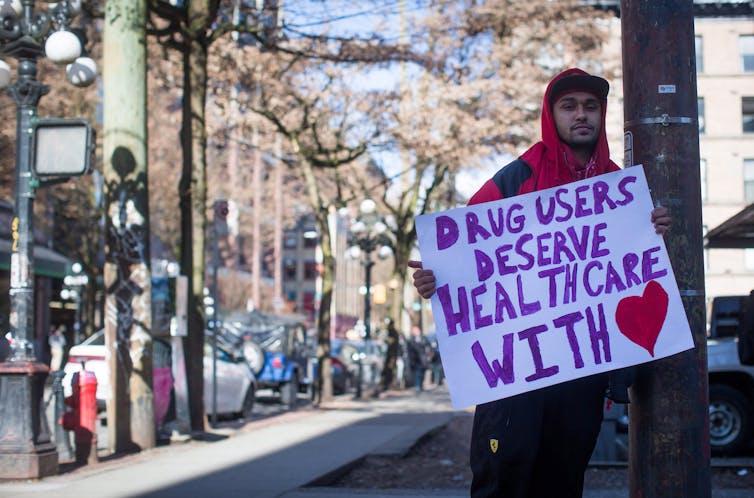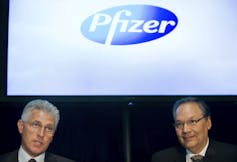The race to develop effective vaccines against COVID-19 has put the pharmaceutical industry in the spotlight.
Over the last few months the world has witnessed both rapid clinical trials and rapid approvals of numerous highly effective vaccines such as those from Pfizer, Moderna or AstraZeneca. This unprecedented achievement has been possible thanks to the close collaboration between pharmaceutical companies, the support of public companies and international collaboration.
The proactive approach taken by large pharmaceutical companies in the development of vaccines has also had an unexpected consequence: their reputation has improved significantly since the beginning of 2020. A report produced in February 2021 revealed that nearly two-thirds of Americans had a good opinion of the pharmaceutical industry.
But the reputational risk is still lurking despite the fact that these companies are the heroes of the pandemic.
A good example of this is the controversy surrounding the possible serious side effects of the AstraZeneca vaccine. The English company suffered the rejection of public opinion due to the lack of a response plan to this crisis and also due to the controversial messages given by some of its main shareholders.
(AP Photo/Kirsty Wigglesworth)
Will this improved reputation allow the pharmaceutical industry to improve its public image? As a professional dedicated to the study of public relations, I believe that the big pharmaceutical companies (Big Pharma) will only be able to save their image if they make socially responsible practices their priority.
The reputational damage of Big Pharma
Before the COVID-19 pandemic, the pharmaceutical industry had been dealing with reputational damage for years. Especially significant in this regard was a Gallup poll conducted in August 2019, in which he analyzed the favorite economic sectors of Americans, and in which the pharmaceutical companies sank to the last place, with only 27% of favorable opinions. According to Gallup’s analysis, high drug prices and the opioid crisis, as well as massive advertising and high spending on lobbieshad damaged the public image of the sector as a whole.
This view is consistent with public relations research carried out in Europe. On a qualitative analysis published by Public Relations Inquirya research team from the University of Ghent, looked at how Belgian pharmaceutical companies had coped with the general bad image created by the big companies in the sector (Bad Pharma).
Their analysis revealed that these negative perceptions reflected broader social issues, such as discontent stemming from rising revenues from these companies or general economic inequality. People expect the pharmaceutical industry to prevent deaths and improve people’s quality of life through the development of innovative, effective and affordable medicines. In line with this, the industry loses people’s trust when they perceive that their actions and motivations do not meet these expectations. Although the truth is that this drop in consumer confidence could easily be repaired through the publicity of corporate responsibility actions or through public relations campaigns.
Regarding the reputational challenges of the pharmaceutical industry, the way in which the media treats these companies also influences. A 2020 analysis of media coverage of Big Pharma revealed that most of the news about them was neutral and related to topics such as financial statements, benefits, mergers, acquisitions and corporate restructuring. The coverage was more negative when it delved deeper (although it happened less frequently) into aspects that had to do with feelings.
In other words: most of the news about Big Pharma approached it from an economic point of view and not from a social or public health perspective. This lack of media attention to the social responsibility dimension of the industry has contributed to increasing public mistrust of it in recent years.
 –
–THE CANADIAN PRESS/Darryl Dyck
The Risk Underlying Reputation Enhancement for Vaccines
Considering the above factors, it cannot be surprising that the fact that the pharmaceutical industry has focused all its efforts on the development of vaccines against COVID-19, coupled with extensive media coverage, has resulted in a marked improvement in public perception. According a public report by think tank Data for Progress in March 202156% of respondents had a positive impression of pharmaceutical companies, twice as many as in the 2019 Gallup poll.
However, a more careful analysis of these data requires two caveats.
First of all, the cost of medicines remains the main concern of consumers. The Data for Progress report suggests that 72% of US voters support policies aimed at lowering the price of prescription drugs. Meanwhile, the pharmaceutical industry insists that the discounted prices for which it offers vaccines against COVID-19 today will not last much longer.
Will vaccine prices go up?
Last February, Pfizer CEO Frank D’Amelio stated in a meeting with Wall Street analysts that when the pandemic passes his company “is going to get more of the price”, and hinted that there will be a significant increase in the price of its vaccines against COVID-19.
 –
–THE CANADIAN PRESS/Graham Hughes
Right now Pfizer charges $19.50 per dose of the vaccine, but the median price for the company’s other vaccines ranges from $150 to $175. If this measure were finally carried out, this aggressive price-raising policy would undoubtedly provoke a lot of criticism among consumers, especially among residents of developing countries, who were ignored in the first rounds of allocation of vaccines.
Secondly, the great speed at which the innovation and research processes have taken place during the development of the COVID-19 vaccine is fundamentally explained by the extensive financial support given by the States and the public-private collaborations carried out. carried out in different sectors. It is not clear, however, if these special measures herald the arrival of a new model in which the States will apply greater regulation to matters of large pharmaceutical companies such as patents, advertising, transparency in relation to public data or spending on activities lobby.
If the pharmaceutical industry wants to consolidate its recent change in image, it must capitalize on the positive perception that it currently has of it, and for this it must give priority to socially responsible practices. This starts with fairer prices for medicines and a sincere commitment to end the inequalities that affect everyone’s health.
–


